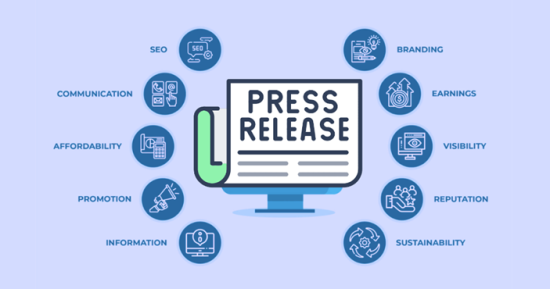
Did you know that over 80% of businesses in the United States rely on vehicle financing to acquire the transportation they need? Business car loans have become a crucial tool for companies of all sizes, providing flexible and affordable options to meet their operational needs.
These specialized loans offer businesses the ability to purchase or refinance cars, vans, and even some trucks, with the added benefit of built-in collateral in the form of the vehicle itself. This can result in lower interest rates and easier qualification compared to other small business financing options, making business car loans an attractive choice for companies in search of reliable transportation.
Whether you’re a startup in need of a fleet of vehicles or an established enterprise looking to upgrade your company’s transportation, understanding the ins and outs of business car loans can be the key to unlocking the right financing solution for your organization. In this comprehensive guide, we’ll explore the top lenders, the benefits of these loans, and the steps to secure the best deal for your business in 2024.
What is a Business Car Loan?

A business car loan, also known as a commercial auto loan or business vehicle loan, is a type of financing that allows companies to purchase or refinance vehicles for their operations. The primary purpose of a business car loan is to provide businesses with the necessary transportation they need, whether it’s for transporting goods, employees, or carrying out other business activities.
Definition and Purpose
A business car loan is designed to help companies acquire the vehicles they need to support their day-to-day operations. These loans can be used to finance the purchase of new or used vehicles, or to refinance existing ones, providing businesses with the transportation they require to operate efficiently.
Eligibility Criteria
To qualify for a business car loan, companies typically need to demonstrate a strong financial history, including a good credit score, stable cash flow, and a well-established business. The credit score required for a business auto loan can vary depending on the lender, but generally, a score of 700 or higher is preferred. Businesses that are just starting out may face additional challenges in obtaining a loan, but some lenders may be willing to work with them if they can demonstrate a solid business plan and reliable income.
Types of Vehicles Covered
Business car loans can be used to finance a wide range of vehicles, including cars, vans, and some types of trucks. The specific types of vehicles covered may vary by lender, so it’s important for businesses to research their options and ensure the vehicles they need are eligible for financing. In some cases, businesses may even be able to get a loan for a car on a freshly started business, although the terms and conditions may be more stringent.
Ultimately, a business car loan can be a valuable tool for companies looking to acquire the transportation they need to support their operations, whether they’re a well-established enterprise or a newly launched venture.
Benefits of Business Car Loans
Business car loans offer several advantages for companies in need of vehicle financing. One key benefit is the built-in collateral in the form of the vehicle itself. This can make it easier for businesses, including LLCs, to qualify for financing and potentially result in lower interest rates compared to other types of small business loans.
Built-in Collateral
The vehicle being financed serves as collateral for the business car loan. This means that the lender has a financial stake in the purchased vehicle, which can improve the chances of loan approval, even for businesses with a limited credit history or lower business credit score. The collateral also provides the lender with a backup option in case of default, potentially leading to more favorable loan terms.
Potential for Lower Interest Rates
Because the vehicle acts as collateral, business car loans may come with lower interest rates than unsecured small business loans. Lenders view these loans as less risky, which can translate to cost savings for the borrowing company. This can be particularly beneficial for businesses looking to buy a car or finance a fleet of vehicles.
Separation of Personal and Business Assets

By obtaining a dedicated business car loan, companies can keep their personal and business assets separate. This can be advantageous for maintaining a clear distinction between the company’s finances and the owner’s personal finances, which is especially important for LLCs and other business structures. It can also simplify record-keeping and tax-related documentation.
How to Get a Business Car Loan?
Securing a business car loan involves several crucial steps. First, businesses must identify the right vehicle that meets their operational needs and aligns with their budget. This may involve researching various makes and models, considering factors such as fuel efficiency, cargo capacity, and seating arrangements.
Next, savvy businesses should compare offers from multiple lenders to ensure they are getting the best possible terms and interest rates. What is the easiest car company to get financing? and can i use a business line of credit to buy a car? are important questions to explore as businesses evaluate their financing options. Factors such as loan amount, repayment period, and down payment requirements should all be carefully considered.
Comparing Lender Offers
When do business loans hurt your credit?, it’s crucial for businesses to thoroughly vet potential lenders. This may involve reviewing each lender’s eligibility criteria, interest rates, fees, and repayment terms. By comparing multiple offers, businesses can negotiate better terms and find the most suitable financing solution for their needs.
Applying with a Lender
Once a business has identified the right vehicle and compared lender offers, the final step is to complete the application process with the selected lender. This typically involves submitting various financial documents, such as business tax returns, bank statements, and proof of income. The lender will then evaluate the application and make a decision on the loan.
By following these steps, businesses can navigate the process of obtaining a business car loan with confidence, ensuring they secure the transportation they need to drive their operations forward.
Top Lenders for Business Car Loans
When it comes to securing a business car loan, several top-tier lenders offer specialized financing options to meet the diverse needs of companies. Let’s take a closer look at some of the leading providers in this space:
Bank of America
Bank of America is a prominent financial institution that caters to businesses of all sizes, including those in need of vehicle financing. Their business car loan program provides competitive rates, flexible repayment terms, and streamlined application processes, making them a popular choice for companies is it difficult to get a business loan?
PNC
PNC Bank is another major player in the business car loan market, offering customized financing solutions for companies. They take a comprehensive approach to evaluating each applicant’s needs, how do banks verify income for auto loan self-employed? ensuring they receive the most suitable financing options for their specific requirements.
Ally Bank
Ally Bank, known for its innovative digital banking services, also provides business car loans to cater to the transportation needs of companies. Their lending process is designed to be quick and efficient, who has the lowest auto loan rates? allowing businesses to secure the vehicles they need without unnecessary delays.
Wells Fargo
Wells Fargo is another reputable lender that offers comprehensive business car loan solutions. With a focus on tailoring their offerings to the unique requirements of each client, Wells Fargo strives to provide business owners with the financing they need to acquire the vehicles essential for their operations.
Truist
Truist, formed through the merger of BB&T and SunTrust, also maintains a strong presence in the business car loan market. Their team of experienced professionals works closely with companies to understand their transportation needs and develop customized financing strategies to meet their goals.
These top lenders provide a diverse range of business car loan options, each with their own set of benefits and features. By carefully evaluating their offerings and comparing the terms, businesses can find the most suitable financing solution to support their transportation requirements and drive their success.
Factors Affecting Business Car Loan Rates
When applying for a business car loan, several key factors can influence the interest rates and terms offered by lenders. Understanding these factors can help self-employed individuals, LLC owners, and other business owners secure the most favorable financing for their vehicle needs.
Credit Score

Much like with personal car loans, a business’s credit score plays a crucial role in determining the interest rate and loan terms. Businesses with a strong, established credit history and high credit scores will typically qualify for lower rates and better terms compared to those with poor or limited credit. Maintaining a good business credit score is essential for self-employed people looking to buy cars or use their personal vehicle for their LLC.
Business History
Lenders will also consider the overall history and financial stability of the business when evaluating a car loan application. Companies with a longer track record, consistent revenue, and a proven ability to manage debt will often receive more favorable loan offers than newer businesses or those with a less established financial profile. While an LLC may not have a lengthy credit history, using an EIN number to buy a car can help demonstrate the business’s viability and creditworthiness.
Vehicle Type and Age
The specific make, model, and age of the vehicle being financed can also impact the loan rates and terms. Newer, more reliable vehicles tend to be viewed as lower-risk collateral, potentially leading to better financing options. Older or high-mileage vehicles, on the other hand, may be perceived as higher-risk and could result in higher interest rates or stricter loan requirements. Understanding how vehicle type and age affect the credit score needed for a business car loan can help self-employed individuals and LLC owners make informed decisions.
Business Car Loan
When applying for a business car loan, there are several important factors to consider. The loan amount, repayment term options, and down payment requirements can all impact the overall cost and feasibility of the financing solution for your company.
Loan Amount Considerations
The loan amount you qualify for will depend on factors such as your business’s financial health, credit profile, and the value of the vehicle you’re looking to purchase or refinance. Lenders typically offer business car loans ranging from $10,000 to $100,000 or more, depending on your needs and qualifications.
Repayment Term Options
The repayment term for a business car loan can vary, with common options ranging from 12 to 84 months. Longer terms can result in lower monthly payments, but may come with higher overall interest costs. Consider your company’s cash flow and budget when selecting the optimal repayment term for your commercial vehicle financing needs.
Down Payment Requirements
Many business car loan providers require a down payment, typically ranging from 10% to 20% of the vehicle’s total cost. A larger down payment can lead to lower interest rates and monthly payments, as well as potentially faster vehicle acquisition approval. Evaluate your available capital and determine the optimal down payment amount to secure the most favorable auto loans for businesses.
Alternative Financing Options
While business car loans are a popular option for companies in need of vehicle financing, there are also alternative financing solutions to consider. These alternatives can provide additional flexibility and may be better suited for certain business needs or situations.
Equipment Financing
For businesses that require specialized equipment or machinery, equipment financing can be a viable option. This type of financing allows companies to acquire the necessary equipment financing they need to operate, without tying up valuable capital in a vehicle purchase. Equipment financing often comes with more favorable terms and lower interest rates compared to traditional business loans.
Business Line of Credit
Another alternative to business car loans is a business line of credit. This type of financing provides businesses with access to a pool of funds that can be used for a variety of purposes, including the acquisition of vehicles. A business line of credit can offer more flexibility than a traditional loan, as companies can borrow funds as needed and only pay interest on the amount they use.
Leasing vs. Buying
For businesses that don’t require permanent vehicle ownership, leasing may be a more suitable option than purchasing a vehicle outright. Leasing can provide access to newer, more efficient vehicles with lower upfront costs and potentially lower monthly payments. This approach can be particularly beneficial for companies with fluctuating transportation needs or a desire to regularly update their fleet.
| Financing Option | Key Advantages | Potential Drawbacks |
|---|---|---|
| Equipment Financing |
|
|
| Business Line of Credit |
|
|
| Leasing vs. Buying |
|
|
By exploring these alternative financing options, businesses can find the best vehicle acquisition solution to meet their unique needs and budget.
Tips for Getting the Best Business Car Loan Deal
To secure the most favorable terms on a business car loan, it’s crucial for companies to focus on several key factors. These include improving their business credit score, maintaining detailed financial records, and proactively shopping around and negotiating with lenders.
Improving Business Credit Score
One of the primary drivers of a business car loan’s interest rate and terms is the company’s credit score. Self-employed individuals or those with a newly formed LLC should work diligently to build a strong business credit profile. This may involve timely bill payments, reducing debt levels, and establishing credit with vendors and suppliers. A higher business credit score can unlock more favorable financing options and lower interest rates.
Maintaining Good Financial Records
Lenders will closely examine a business’s financial health when evaluating a car loan application. Companies should ensure they have meticulous records of income, expenses, and cash flow. This documentation not only demonstrates the business’s ability to make loan payments but can also help secure a more advantageous loan amount and repayment term. By maintaining impeccable financial records, businesses can position themselves as reliable borrowers.
Shopping Around and Negotiating
It’s crucial for businesses to compare offers from multiple lenders to find the most competitive business car loan terms. This may involve reaching out to banks, credit unions, and alternative financing providers to assess their interest rates, down payment requirements, and repayment options. Once businesses have secured multiple offers, they can leverage this information to negotiate better terms with their preferred lender. Proactive shopping and negotiation can lead to substantial savings over the life of the loan.
| Key Consideration | Explanation |
|---|---|
| Business Credit Score | A strong business credit score can help secure more favorable terms and interest rates for a business car loan. Establishing and maintaining a good credit profile is essential. |
| Vehicle Type and Age | Lenders often have specific guidelines regarding the type and age of vehicles they are willing to finance. New vehicles may have lower rates, while older or high-mileage vehicles may face higher interest charges. |
| Loan Repayment Terms | Businesses can typically choose from various repayment term options, ranging from 12 to 84 months. Longer terms may result in lower monthly payments but higher overall interest costs. |
| Down Payment Requirements | Lenders may require a down payment, often ranging from 10% to 20% of the vehicle’s purchase price. A larger down payment can improve the chances of loan approval and potentially lead to better rates. |
By understanding these business car loan FAQs, companies can make informed decisions and navigate the commercial vehicle financing process with confidence.
Conclusion
Business car loans provide an essential financing solution for companies in need of reliable transportation for their operations. These loans offer several key benefits, including built-in collateral, the potential for lower interest rates, and the separation of personal and business assets. Whether your company requires new or used vehicles, or you’re looking to refinance existing ones, business car loans can be a valuable tool to help you acquire the transportation you need to support your business activities.
As you explore your financing options, it’s important to carefully compare offers from different lenders, consider factors that can impact your loan rates, and take steps to ensure you secure the best possible deal. By doing your due diligence and leveraging the advantages of business car loans, you can obtain the vehicles your company needs while optimizing your financial resources.
In conclusion, business car loans are a versatile and advantageous financing solution for companies of all sizes, from small businesses to large corporations. By understanding the benefits and navigating the process effectively, you can unlock the transportation and cost-savings your business requires to thrive in today’s competitive marketplace.
Business Car Loan FAQs
What credit score do I need for a business car loan?
The minimum credit score required can vary by lender, but generally, a score of 600 or higher is preferred. However, some lenders may consider scores as low as 500 for small business auto loans.
Can I use a business line of credit to buy a car?
Yes, a business line of credit can potentially be used to finance the purchase of a vehicle for your company. This approach can provide more flexibility compared to a traditional business car loan.
Does an LLC have a business credit score?
Yes, limited liability companies (LLCs) can establish a separate business credit score that is distinct from the personal credit scores of the owners. This business credit score can be an important factor in securing commercial vehicle financing.
Can I buy a car with my EIN number?
Yes, you can use your Employer Identification Number (EIN) to apply for a business auto loan or fleet vehicle financing. This approach allows you to separate the vehicle purchase from your personal finances.
How do self-employed people buy cars?
Self-employed individuals can utilize business car loans to finance vehicle purchases for their companies. Lenders may require additional documentation, such as tax returns and financial statements, to verify income and assess creditworthiness.






